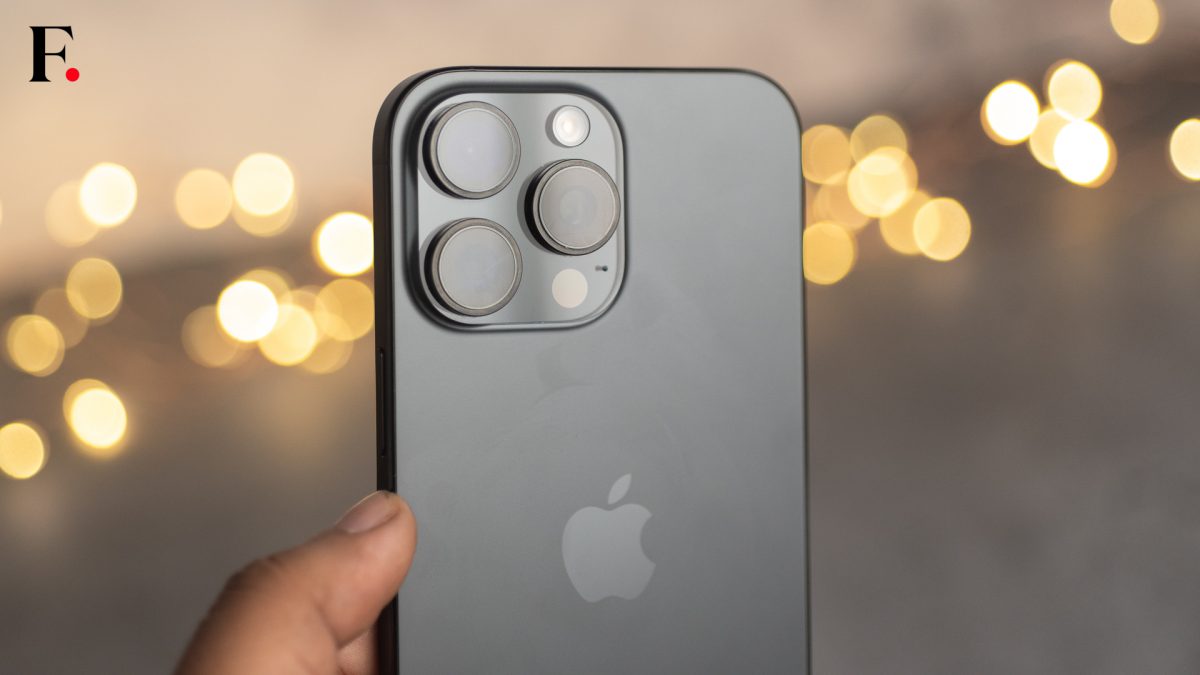Apple is going big in China.
The company is offering huge discounts on its iPhones starting January 4.
And this isn’t just its old models either.
The firm is offering hefty discounts on some of its top models.
But what is it doing? And why is it doing so?
Let’s take a closer look:
What do we know?
As per BBC, Apple will be holding the sale from January 4 to January 7.
The company is offering a discount of as much as $68.50 ( Rs 5,800) on its handsets including some of its newest models.
As per QZ, the discount is available to customers using “eligible payment methods.”
This includes using WeChat Pay or Alipay to qualify for the discounts.
The maximum discount is applicable on the iPhone 16 Pro and iPhone 16 Pro Max.
The former is available at a starting price of Rs 93,000 while the latter sells for Rs 1.17 lakh.
The iPhone 16 and iPhone 16 Plus, the two less premium models, are being discounted by $54.65 (Rs 4,687).
The firm previously held a sale in China ahead of the Lunar New Year holiday, as per BBC.
The Apple promotion also includes discounts of Rs 2,300 to Rs 3,500 on older iPhone models, as well as other categories of products such as MacBook laptops and iPad tablets.
Impact Shorts
More ShortsWhy is Apple offering discounts?
The discounts come as consumers remain cautious with spending amid China’s slowing economy and deflationary pressures, with the country’s consumer inflation hitting a five-month low in November.
Experts say the company is responding to the behaviour of consumers.
“Apple’s strategy has changed to adapt to the change in Chinese consumers’ shopping behaviour,” Will Wong, a senior research manager for market intelligence firm International Data Corporation (IDC), told BBC.
“The value-seeking trend has made price discounts more attractive to consumers. Apple may fall behind other competitors if it doesn’t adopt such a pricing strategy.”
The move also comes as Apple faces competition from Huawei and other local manufacturers and a declining market share.
Apple in the second quarter of 2024 briefly fell out of China’s top five smartphone vendors.
As per QZ, Apple returned to the top five makers in the second quarter with a 15.6 per cent share.
As per 9 to 5 Mac, Apple in November was down 47 per cent year over year in China sales.
Calculations based on the data from the China Academy of Information and Communications Technology (CAICT) showed that foreign brand shipments decreased to 3.04 million units from 5.769 million units a year earlier.
The decline follows October’s 44.25 per cent year-on-year drop in foreign smartphone shipments, extending a downward trend in the world’s largest smartphone market.
Huawei has emerged as a particularly strong challenger since its return to the premium segment in August 2023 with locally-made chipsets.
Huawei is also constantly innovating – with its Mate XT smartphone debuting just hours after Apple’s iPhone 16 in September.
As per Business Insider, Huawei’s Mate 60 series of smartphones in 2023 and the Mate 70 series released in November took the industry by storm.
Apple also faces the handicap of AI generative features not being available on its iPhones in China.
According to BBC, Huawei’s sales have spiked 40 per cent in the third quarter of 2024 even as Apple’s shares declined by .3 per cent.
“Huawei has staged an impressive comeback, recording four consecutive quarters of at least double-digit growth,” the IDC was quoted as saying by QZ. “The launch of the world’s first tri-foldable phone is expected to further drive the foldable market development.”
The firm is also facing competition from firms such as Vivo and Xiaomi.
Vivo was China’s best-selling smartphone maker in that period.
The company’s sales increased over 20 per cent.
“We’ve seen market competition increase with almost everyone launching a flagship last quarter," said Ivan Lam, a senior analyst at Counterpoint Research.
Huawei cut prices of some of its high-end devices by 20 per cent, as per BBC.
Some mobile phones were available for up to Rs 35,000 cheaper over the weekend on one of China’s leading e-commerce platforms.
As per 9 to 5 Mac, the government has also been pushing customers to purchase Chinese brands.
This comes after the US began a trade war in China in 2019. T
The website quoted a local report as saying that some now see using an iPhone as an embarrassment.
The blacklisting of Huawei also gave a fillip to China’s ‘Boycott Apple’ drive.
With inputs from agencies


)

)
)
)
)
)
)
)
)



